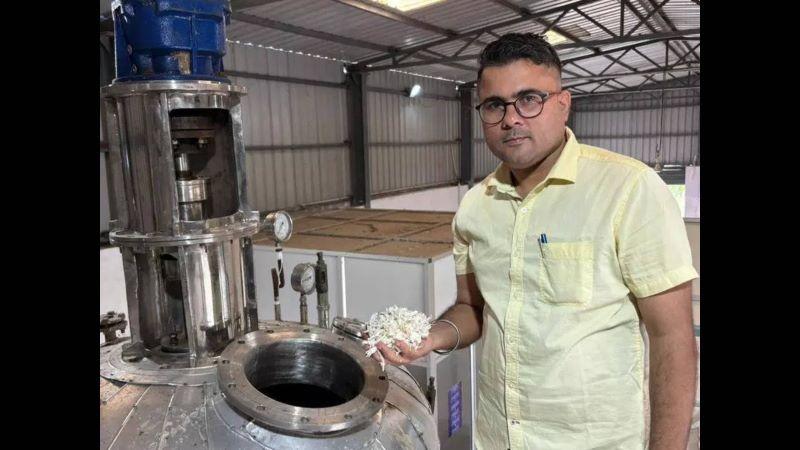
- devara
- 17 Dec 2024 10:43 AM
- Natnov Bioscience, seafood waste, bioplastics
Natnov Bioscience, a biotech startup based in Odisha and recognized by India’s Start-up India initiative and Mukhya Mantri Krishi Udyog Yojana, is making notable strides in addressing the growing problem of seafood waste. The company aims to convert 5,000 metric tons of seafood waste into valuable bio-economy products, including bioplastics. By utilizing the by-products of India's marine fisheries, particularly crustacean waste, the team is developing a sustainable alternative to synthetic plastics. Their eco-friendly bioplastic material is derived from chitin and biopolymers extracted from shrimp waste, offering a promising solution to plastic pollution.
Dr. Siddhartha Pati, scientific director at Natnov Bioscience, explains the rigorous testing process for the bioplastics, ensuring high-quality properties. These tests, which assess key factors such as ash content, moisture, solubility, and yield, confirm the bioplastics' suitability for various applications, especially in food packaging. The team conducted a comparative study against conventional polypropylene, and their bioplastic exhibited remarkable biodegradability, including significant weight reduction and color changes over time. These bioplastics also feature antimicrobial properties, which can extend the shelf life of food products, providing a sustainable and safe packaging alternative.
The growing challenge of plastic pollution, particularly from single-use plastics in food packaging, is being addressed by Natnov Bioscience through its innovative bioplastics. The seafood waste, which constitutes a major portion of India's shrimp processing industry, typically releases harmful gases like ammonia and methane when untreated. However, by transforming this waste into valuable products like biostimulants and bioplastics, Natnov is contributing to both environmental sustainability and India’s vision for a circular bio-economy. This initiative aligns with the country’s efforts to reduce plastic pollution and achieve the United Nations Sustainable Development Goals (SDGs), ultimately supporting a cleaner environment and food security.





































